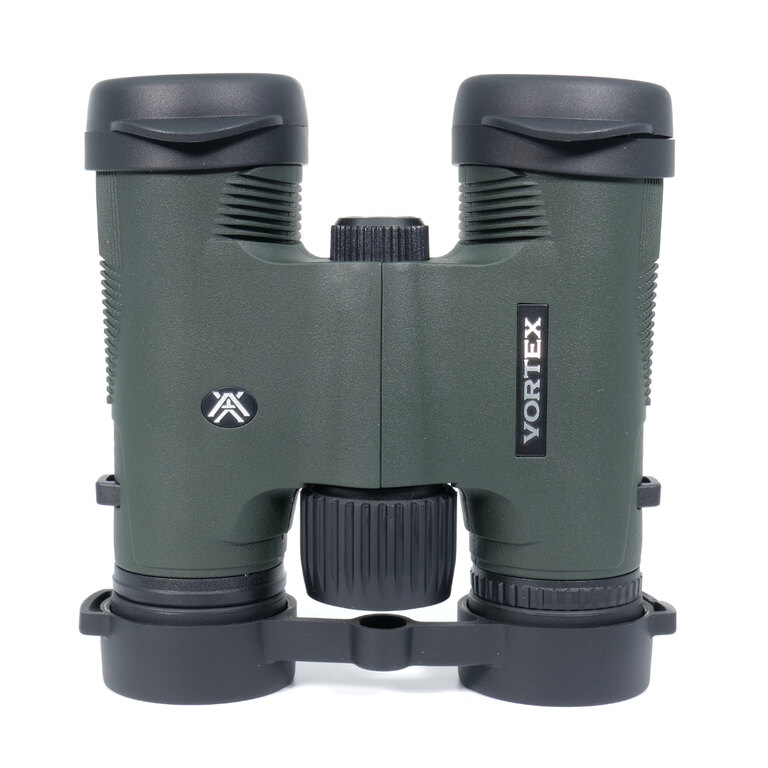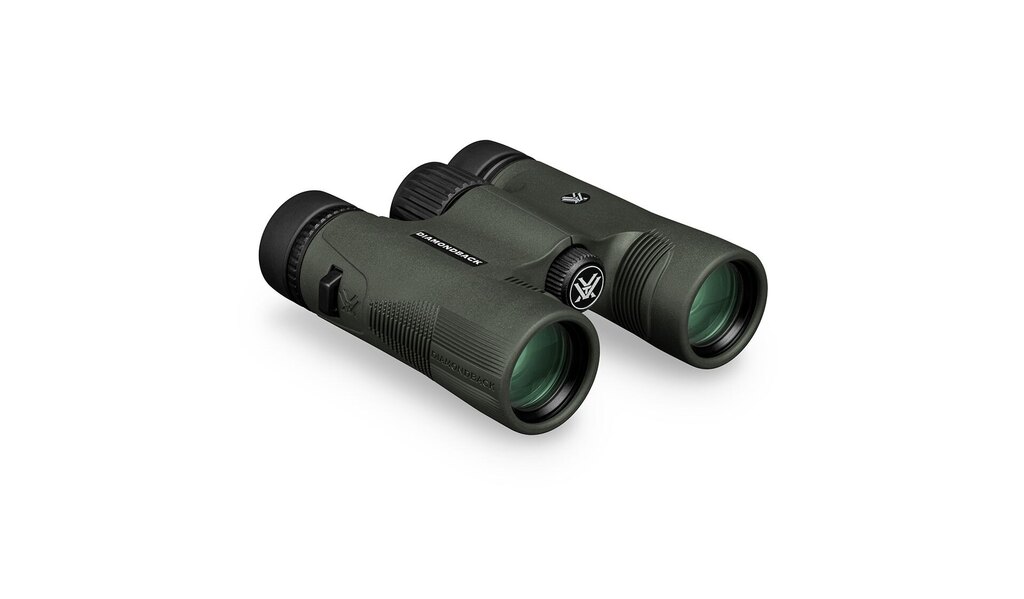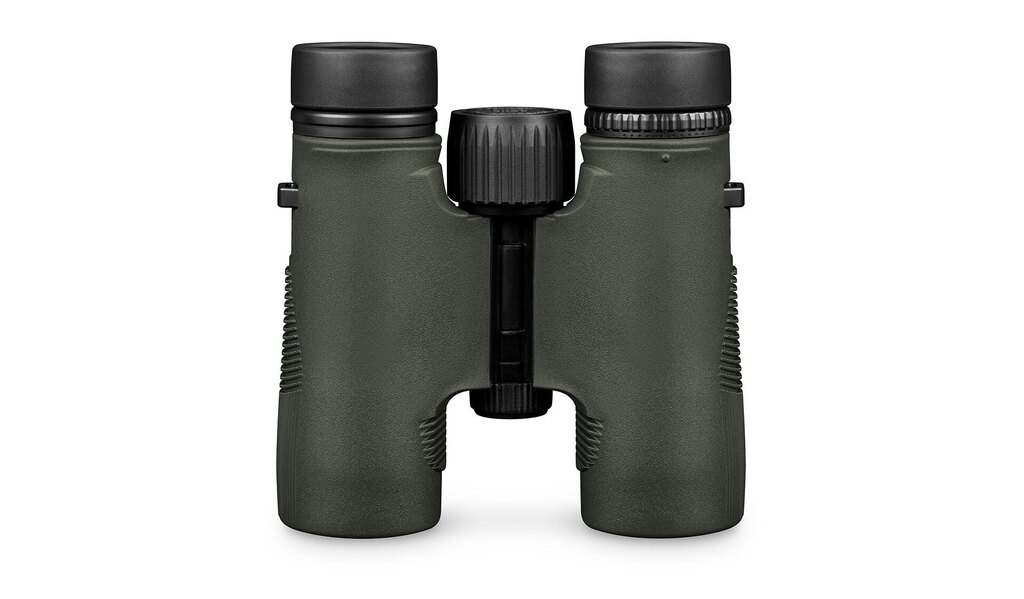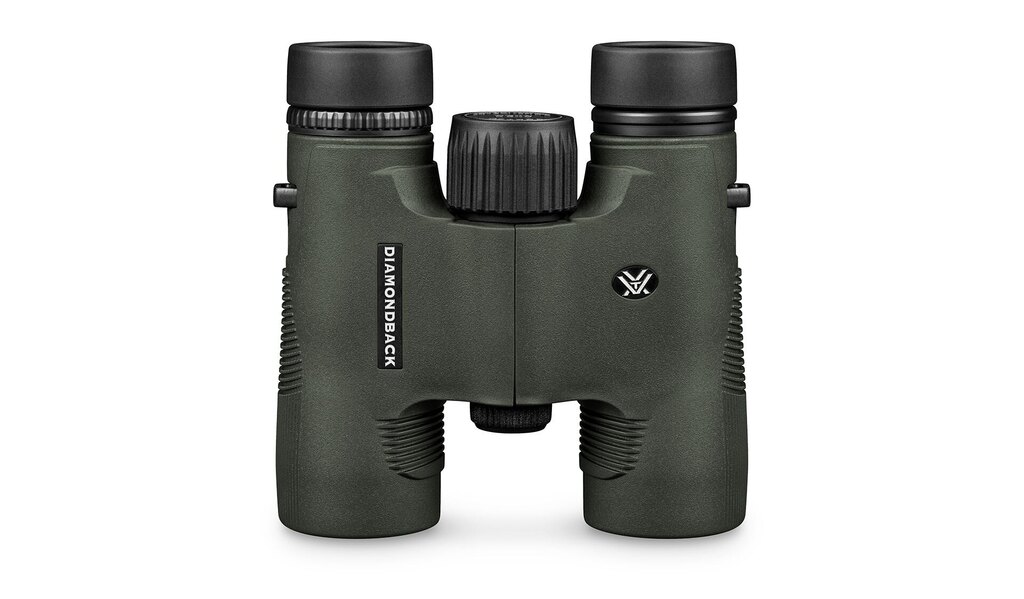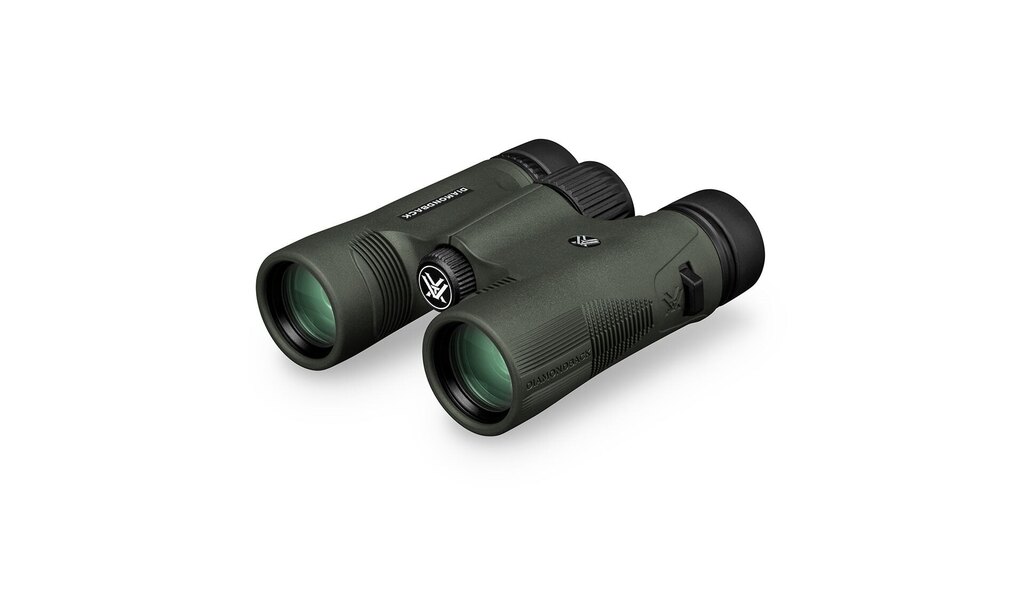
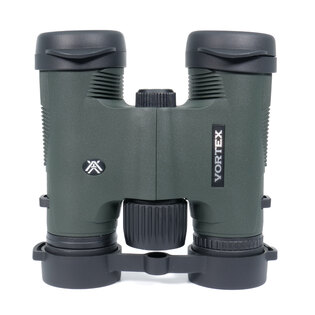
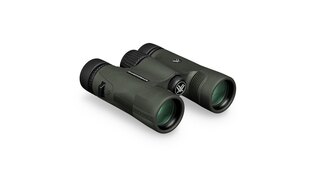
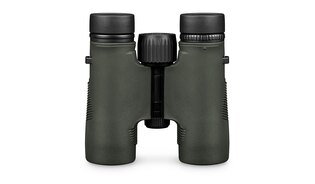
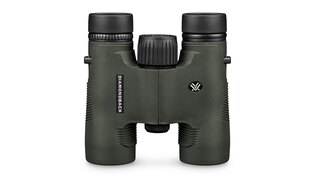
Vortex® Diamondback 8 x 28 Binoculars - green
The Diamondback bino acquisition costs defy price/performance ratio in the global optics market. An incredibly efficient and very powerful optical system with enhanced dielectric-coated lenses offers a sensational image and impressive performance in low lighting – perfect observation of for example hunted game or other targets.
The American brand Vortex Diamondback 8 x 28 is a small-sized bino of relatively low mass. It has sufficient magnification up to eight times, a lens diameter of 32 mm and an excellent field of view of 110.67 m / 1,000 m. Once assembled, it can also fit in a small backpack or satchel. The Diamondback 8 x 28 bino is an ideal companion for hunters as well as for hiking, it does not add unnecessarily to the weight of equipment carried, but it does provide a possibility for quality observation even in cold or winter at freezing temperatures.
Modern technology equals great observation
Roof prisms from BaK4 glass and lenses with anti-reflective treatment of the dielectric surface and full multi-coat on outside glass parts whose surfaces are in contact with air, provide excellent image quality due to extremely high light transmissions. They provide optimal observation results. This state-of-the-art technology guarantees a perfectly clear image with high contrast, sharp contours and natural color resolution.
Settings and Focus for Everyone
The focus is controlled by a center wheel, so it's centred, and at one point we focus both sides simultaneously. It's accurate enough to allow it to zoom in on nearby objects from as far away as 1.98 m. On the right eyepiece there is a dioptric correction, through which we adapt the image exactly for our eyes. By allowing the binoculars to bend at the joint along the centre axis, the distance of the output lens the eye spacing can be adjusted. The bino will thus adapt to all family members, whether children or adults, with eyes close together or far apart.
How to adjust focus
Specify an object for observation, about 20 yd (about 18.29 m) far. Stand in one place at all times. First, use your hand to cover the right lens and follow the object with your left eye through the left tube. Turn the center wheel, until the focus is set. Subsequently, cover the left lens with your hand and look with your right eye into the right tube. Now rotate to adjust the wheel for correction of dioptres, until the focus is set. Remember or make a note of the setting of the diopter wheel, in case you need to reset it. From now on, you will use only the centre wheel.
Withstands harsher conditions
It's waterproof and impact-resistant plus filled with Argon (Argon is much better at protecting the inner parts of the bino from unwanted dew than Nitrogen) and sealed with "o" rings so that does not fog up inside. Special treatment by Rubber Armor brings long life, absorbing shocks, and provides protection of the bino from mechanical damage, as well as other protection against the outside environment. The combination with a rough texture on the sides prevents the hands from slipping, giving the user a perfect, sure and firm grip in cold and hot conditions, in rain or snow, in intense sunshine, whether the bino is wet or frozen, so under all conditions and circumstances.
Hermetically sealed
Special sealing technology protects high-end optics from external influences. No dust, no dirt and no moisture can penetrate the telescope and cause damage and/or defects in the supplied image.
Suit yourself - with or without glasses, in your hand or on a tripod
An eye rubber cup allows the use of binoculars with glasses. The bino can either be held in the hand during observation (for wearing binoculars suspended from the neck, the bino is equipped on both sides with eyelets to secure the supplied strap) or place it on a tripod (for this purpose, the bino is fitted with a tripod adapter slot). It also offers a option to attach to a car window.
Protected and safely stored
And when we don't use the telescope, we store it in a supplied case, in which it is securely stored and transported. The covers protect both the lenses and the output lenses. In the pouch we also find cleanig towel and carry strap.
Care for lenses
When not using the binoculars, put the lens caps on and store it in the case. To maintain the telescope's brilliant performance, lenses must be regularly kept clean, removing smudges, impurities, oils or fingerprints. First, always remove larger impurities (so as not to damage them when cleaning the lens). Then use your breath to fog the lenses and clean them with a non-abrasive cloth. Never use tissues (either paper or cloth), cotton or flannel fabrics. They could cause scratches, which then spoil the view. Ideally, use a dedicated set, such as Fog Free Vortex.
Warning: Do not use the binoculars to observe the sun or other sources of intense light. This bino is not designed for this and such surveillance can damage the retina or cornea and in extreme cases may lead to blindness!
Benefits you need to know about:
- binoculars
- always on hand
- fairly light and compact
- easy to control
- single hand handling
- modern technologies
- waterproof - sealed with "o" rings
- impact-resistant
- treated against internal fogging - filled with Argon
- roof prisms of glass BaK4
- lenses with anti-reflective modification of FMC
- prisms and lenses with dielectric treatment
- very clear high contrast image, with sharp contours and with natural colour resolution
- adjustable multi-positional eye cup allows use with glasses
- dioptric correction on the right side
- special treatment Rubber Amor with a texture to make sure of grip
- short center - plenty of room to hold hands comfortably
- carry strap
- sealing technology protects high-end optics from external influences
- neck cord
- carry pouch
- covers on both sides
| Height / length | 11,2 cm |
| Width | 11,7 cm |
| Magnification | 8 x |
| Weight | 397 g |
| Material in detail | Prisms: glass BaK4 Grip: rubber Eye cup: rubber |
| Other specifications | Lens diameter: 28 mm Exit pupil diameter: 3.6 mm Eye relief: 55 mm to 74 mm Eye relief (distance eye - pupil): 18 mm Field of view at 1,000 yd (approx. 914.4 m) - linear: 101.19 m Field of view at 1000 m - linear: 110.67 m Field of View at 1,000 yd (approx. 914.4 m) - Angular: 6.2o Shortest subject focus distance: 1.98 m Compatible with glasses: yes Waterproofness: yes, sealed with “o“ rings Impact resistance: yes, Rubber Armor Anti-fog technology: yes, filled with argon Fixation: neck cord, tripod, car window Prismatic system: roof prisms Prisms finish: dielectric Lenses coating: anti-reflective FMC + dielectric |
| Parts of delivery | binocular Carry strap Lens covers Exit pupil covers Transport case Cleaning cloth |





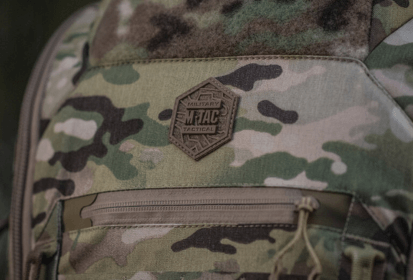


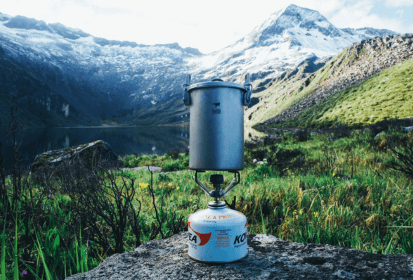

Product inquiry
Product category
 Doručení do České republiky? Přejděte na Dalekohled Diamondback 8x 28 Vortex® - zelený
Doručení do České republiky? Přejděte na Dalekohled Diamondback 8x 28 Vortex® - zelený Doručenie na Slovensko? Prejdite na Ďalekohľad Diamondback 8x 28 Vortex® - zelený
Doručenie na Slovensko? Prejdite na Ďalekohľad Diamondback 8x 28 Vortex® - zelený




















































































































